The breakdancers and ballet artists reclaiming Palestine
- Text by Megan Dolski
- Photography by Tamara Abdul Hadi

With the Beastie Boys blasting from a laptop on the floor, Abood Damra – nicknamed ‘b-boy Vertex’ – swings his body through a few flares and freezes, then smirks as he bounces to the back of the room.
He joins four other out- of-breath dancers in a loose semi-circle before someone else jumps in to catch the beat. No one’s watching; this is just practice: fast-paced and sweaty free-styling three times a week, three hours at a time, at the Nablus Circus School.
Until they can find a spot to call their own, this is home base for Palestinian breakdancing crew Stereo 48.
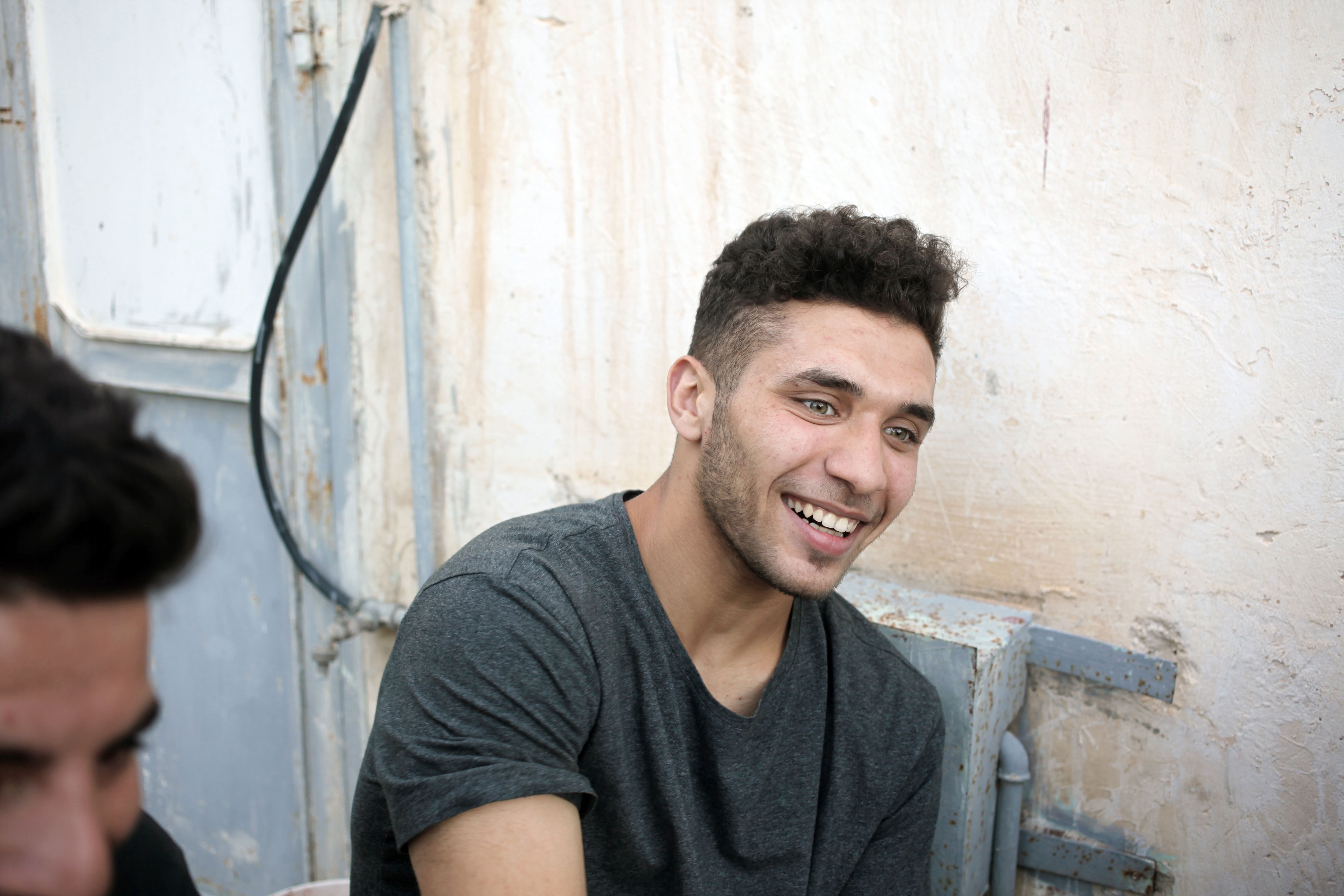
Nablus is a bustling city tucked in between two mountains about 50 kilometres north of Jerusalem. In the early 2000s, Israeli forces identified Nablus as a hub for attacks on its citizens.
The city was surrounded by checkpoints and placed under curfew for a combined 240 days, according to the UN, during which time its residents were forced to stay inside.
For Abood, 20, growing up in a climate of restriction is what got him dancing in the first place. Wearing jeans and a black-and-white keffiyeh-tank top, perched on a ledge overlooking his city, he explains the idea behind what he does.
“As Palestinian people, we need more ways, different styles, to express ourselves,” he explains through a translator. “I saw that dancing could do that.”
Stereo 48 is an energetic, playful group of friends who bonded over that shared vision. The crew’s name is both a nod to hip hop culture and to the displacement of hundreds of thousands of Palestinians after Israel became a state in 1948.
They know it as al-Nakba, or ‘catastrophe’ in Arabic. Together, the crew aims to build a breakdancing scene in Nablus and, once they’ve achieved that, to gain international recognition for Palestine through dance. A few of the crew have already performed and competed abroad, but Stereo 48 has yet to travel as a unit.
After about an hour of going at it non-stop in the heat, the guys take a break. Layers come off and sweaty shirts get switched. Plastic cups filled with orange and apple juice are passed around before the group heads out into the sun for snacks — fuzzy green almonds picked from trees up on a ledge out back.
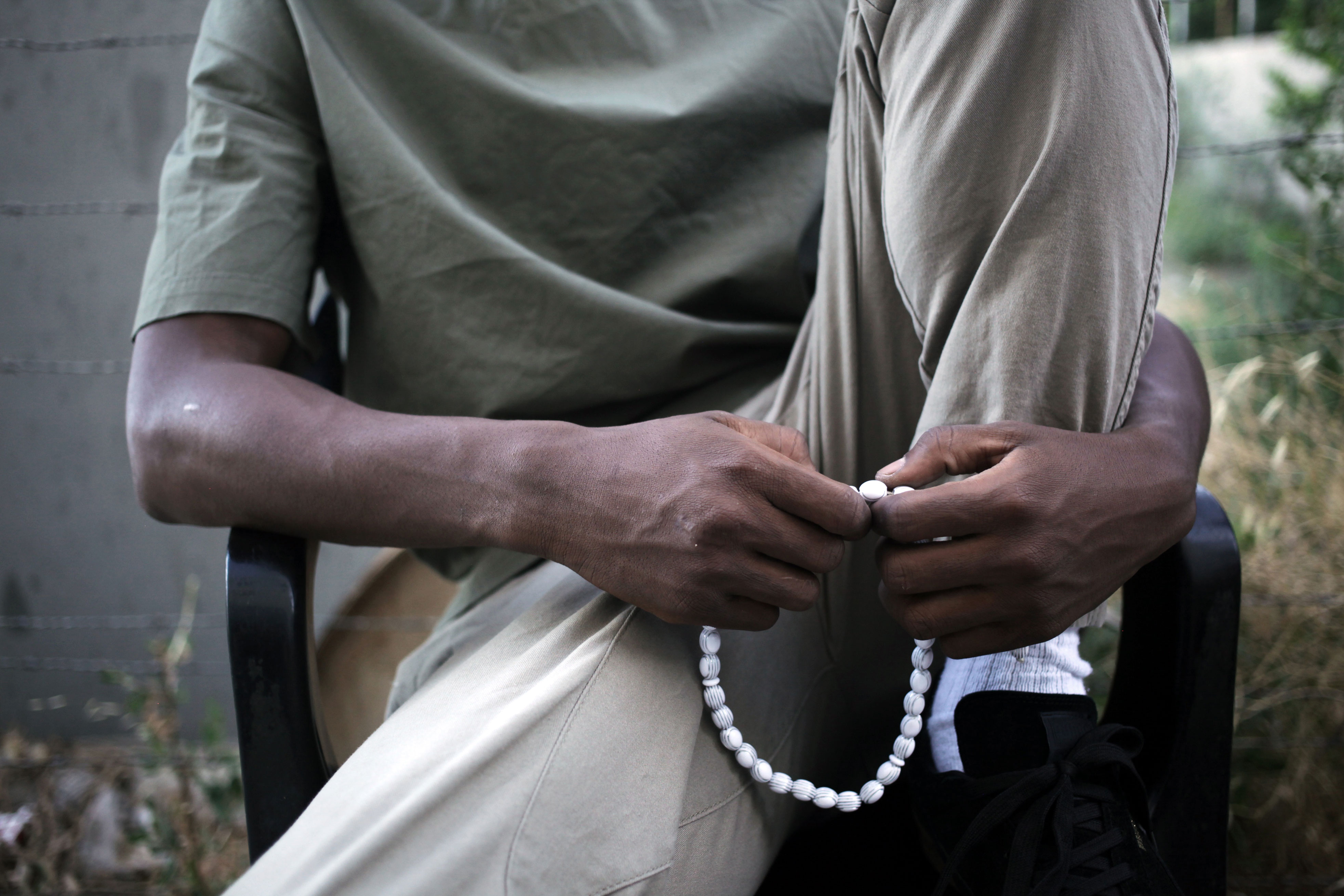
The one person missing from this scene is 22-year-old Ameer Sabra – known as ‘b-boy Ameer’. He’s on tour with a production called Badke, a high-energy Palestinian-Belgian collaboration that fuses various genres of dance.
Over a call from Brussels, Ameer explains how he’s itching to get back to breakdancing after spending a month performing in a more contemporary style. He also misses his friends and can’t stop thinking about the challenge they’re up against.
In Nablus, Ameer says his crew are struggling to be accepted by more conservative stalwarts of Palestinian society, which isn’t always open to their type of dancing. That’s why Stereo 48 sometimes tries to blend Dabke, a traditional Palestinian dance, into what they do – to make it more accessible.
“We always say that this is not a culture [just] for Western people,” he says. “It’s a culture that gives you space and, as Palestinians who are suffering from a lot, from occupation, we need that space to express ourselves.”
With only a few time slots available at the Circus School, they’re looking for a place of their own to practise, host classes and get more people dancing.
“We want to give others the experience we have,” Ameer says. But it’s not just local barriers that stand in the way of the scene’s evolution.
Ramallah-born Kamel Saif, 18, is a contemporary dancer who also does contortionism and acrobatics. He stumbled into dance one day when he turned up at his youth club to play table tennis, only to find the place closed.
Instead he wandered into a nearby dance class, thinking it was stupid. The teacher asked him to point his foot but he couldn’t. His muscles were too tight.
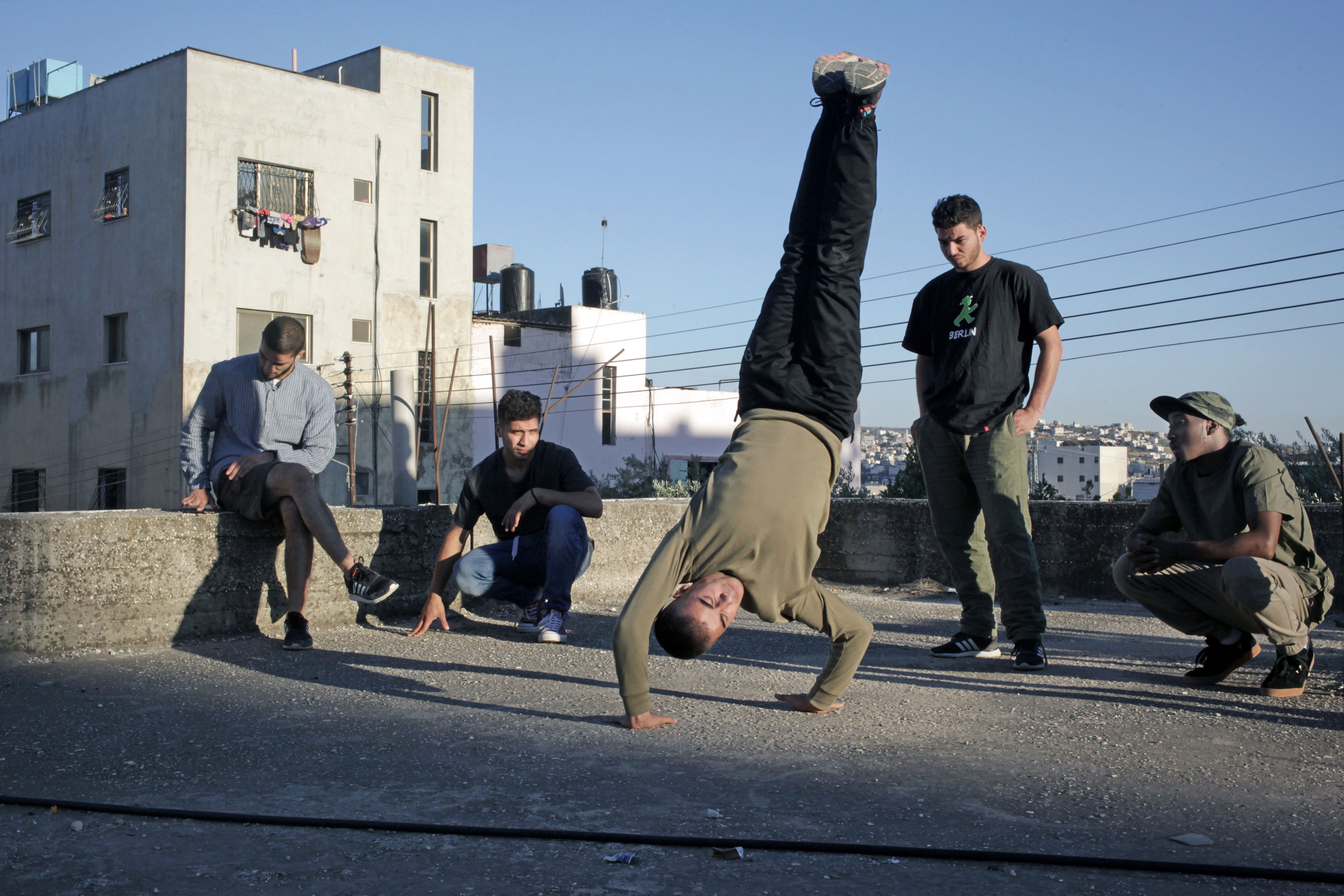
So he promised to take classes until he could do it, thinking he would stop once he’d proved a point, but he’s been dancing ever since. “I kind of dance 24/7,” he says. “I don’t mean like performing 24/7, but even when I’m walking, I usually use dance steps.”
In April, Kamel was booked to perform in the Ramallah Contemporary Dance Festival. His show, a collaboration with Estonia’s Real Life Company, was due to be held at a venue in Jerusalem – but Kamel was prevented from performing.
“No one else needed permission,” he says of his co- dancers from Estonia. As a Palestinian from the West Bank, Kamel can only travel to Jerusalem if he is granted a special permit, despite the UN viewing freedom of movement as a human right – not a privilege that should be granted or denied as an exception to the norm.
Kamel sought permission to enter the city exclusively for the duration of his dance show, a process which required him to get a magnetic ID card. He paid a fee for his application and went to an Israeli liaison office by the Beit El checkpoint for four days in a row – only to be turned down.
That forced the show to be rescheduled at an outdoor square in Ramallah, even though Real Life Company had already performed there as part of the festival.
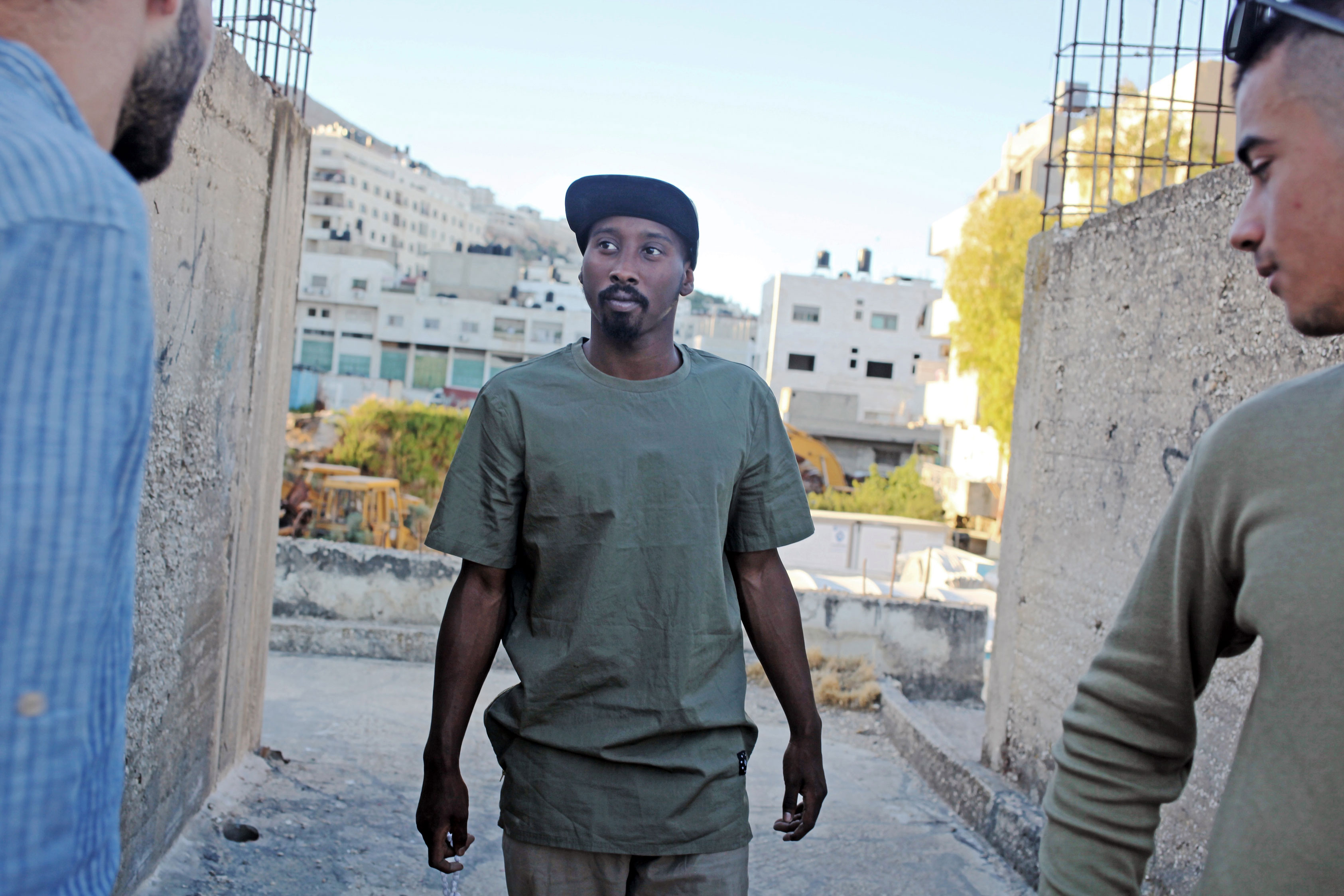
“It was a bit upsetting for everyone,” says Kamel, who’s determined to somehow relay the experience through his performances.
“Before, I never wanted to put politics into my dance solos and stories, but this time, this festival, it had a really direct effect on my dance.”
Shyrine Ziadeh started taking ballet as a kid when her parents signed her up for after-school activities. In high school, she went on to take contemporary dance, jazz and some hip hop.
But then the conflict flared up and her teacher, an American, wasn’t allowed to return to Palestine following a trip abroad. Like Kamel, the frustration of preparing for a show only to have it abruptly called off stuck with her.
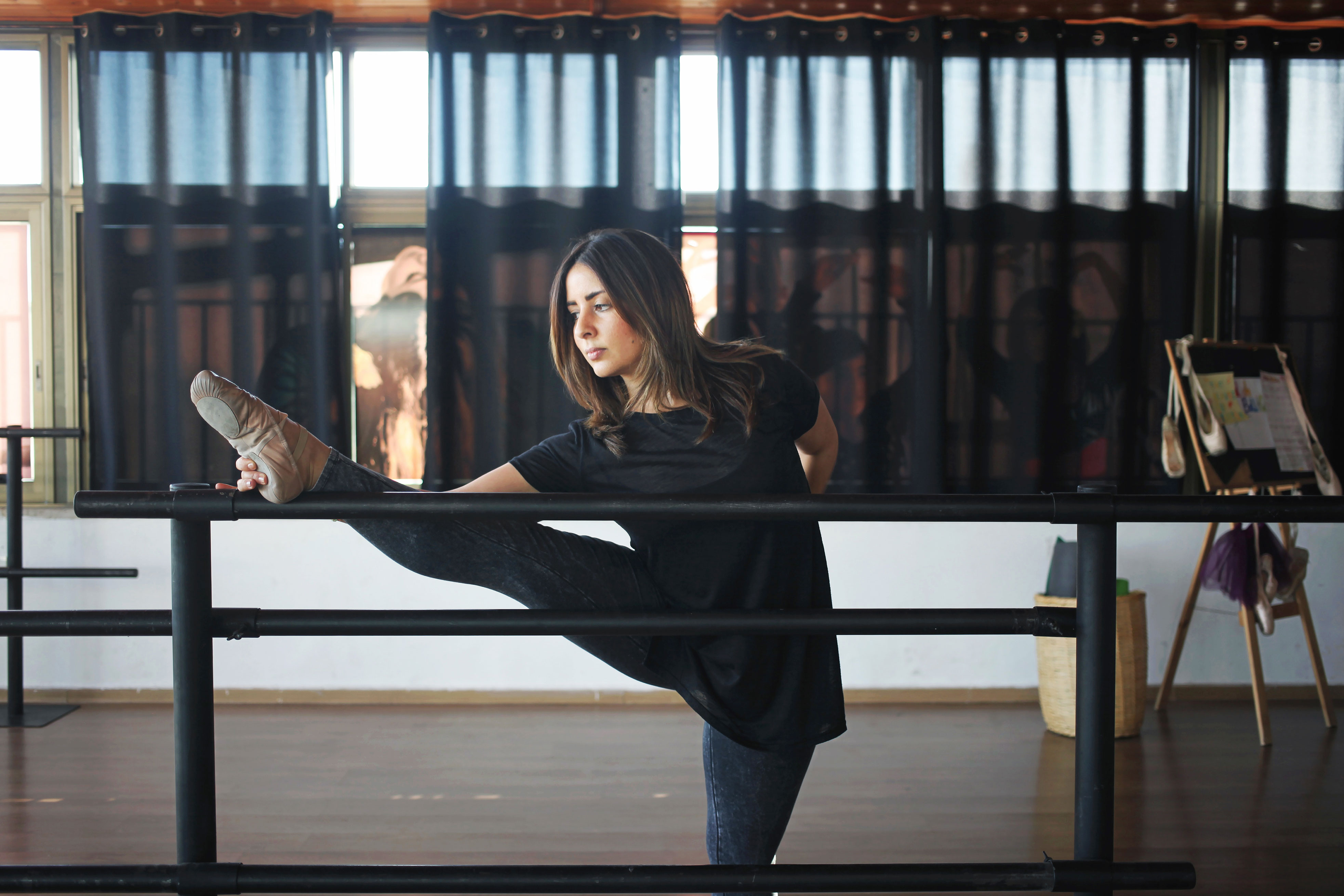
“[Dance] was something I really loved and was deprived of,” she says. “From that moment, I thought we could do something local… Something to teach kids.”
Getting from one place to another is complicated in Palestine, sometimes impossible. Moving within the West Bank or out of it requires navigating Israeli- controlled roadblocks, checkpoints, ‘The Wall’ and a complex permit-system.
The Israeli government says that security concerns justify its restrictions, but the UN believes that some of these measures are not in keeping with international law.
After studying business at Birzeit University and organising informal dance classes through Facebook and word of mouth, she opened the Ramallah Ballet Center.
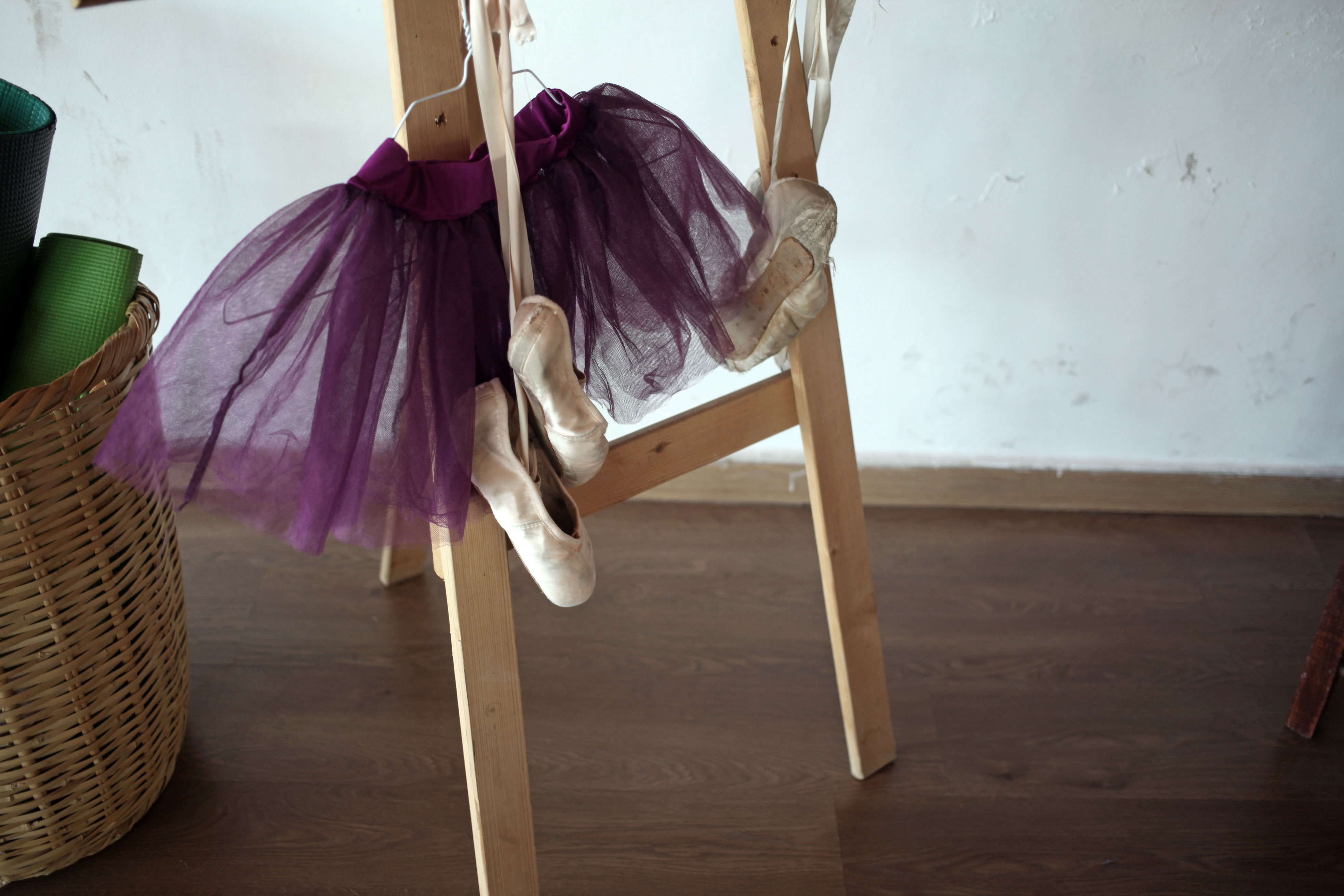
Bright-eyed and enthusiastic, 28-year-old Shyrine speaks excitedly about her studio and the community blossoming around what she’s created.
“When you dance you feel free,” she says. “When you see people dancing and feeling like they own the space — they are free to move their bodies how they want, and can go from here to there freely. It’s something that we miss here.”
The centre, which is often used as a space for guest workshops, overlooks Ramallah’s chaotic downtown and features a hall of mirrors that gets flooded with light.
Even though the centre offers different kinds of dance, Shyrine put ballet in its name as a nod to its roots, and the style she first fell in love with.
“[Ballet] is very pure, very strong,” she says. “It gives you confidence, it’s everything. It builds your body, it builds your mind.”
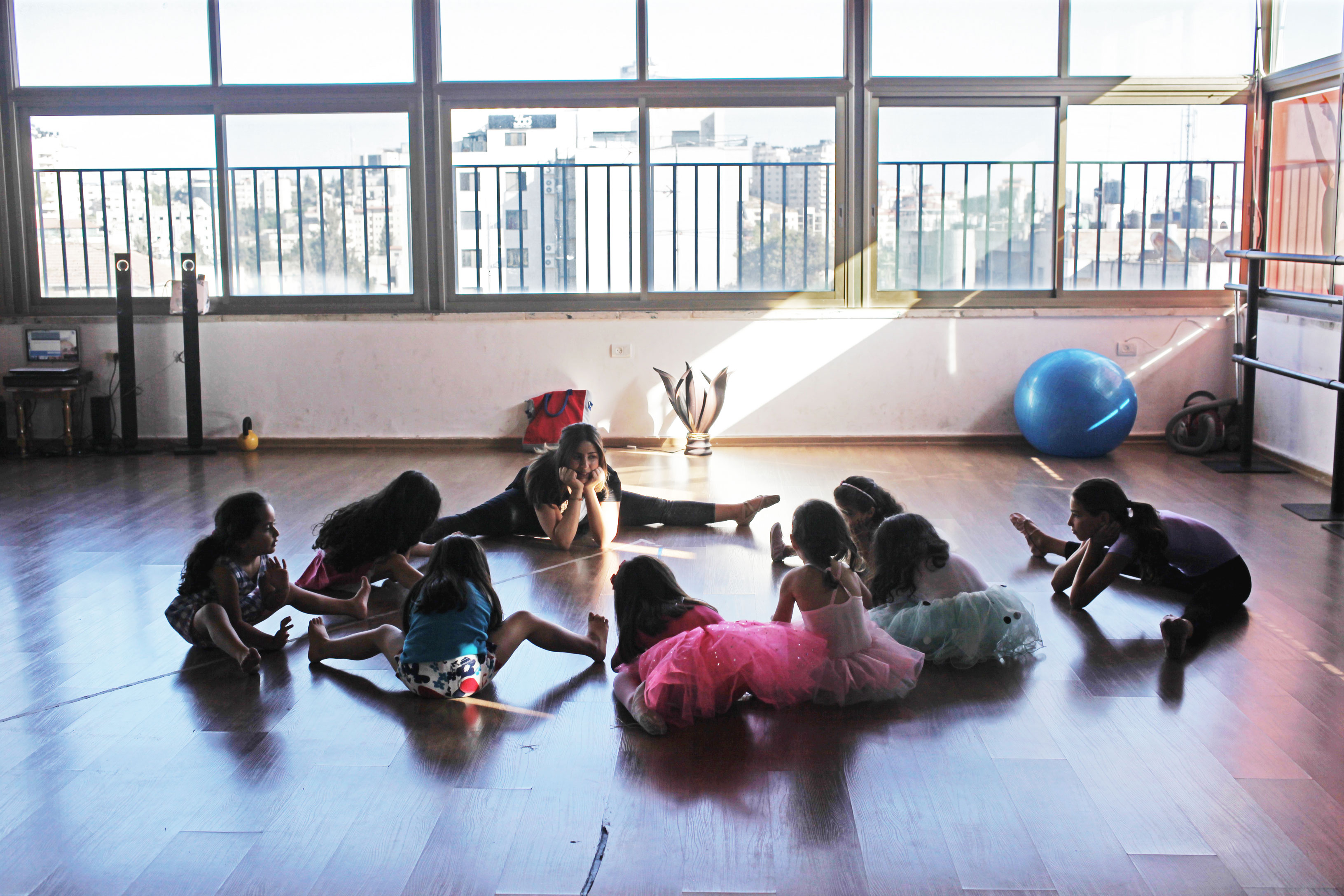
That therapeutic element is important to her, as she wants people to view dance as a healthy outlet worth cherishing.
Shyrine can spot plenty of potential in the dancers she works with but worries they don’t have the opportunities to develop their talent. She tries to round up crowds for salsa nights, just to try something different for older groups.
But it can be hard to lure people out, Shyrine explains, whenever the conflict gets particularly tense. She senses that people feel guilty doing something as cheerful as dancing — though she believes that’s when they need it most.
“I think to deliver your message through art is more powerful than anything in the world,” she says. “So I feel like I’m defending, I’m fighting for my country through this.”
It’s a sentiment echoed by b-boys Abood and Ameer. While travelling, Ameer has been struck by the way Europeans invest in culture.
Yet whenever he spoke of Palestine, people seemed to have no idea what everyday life there might be like beyond the conflict. And when Abood recently took part in an international breakdancing competition in Denmark, people were shocked to see someone from Palestine dancing there at all.
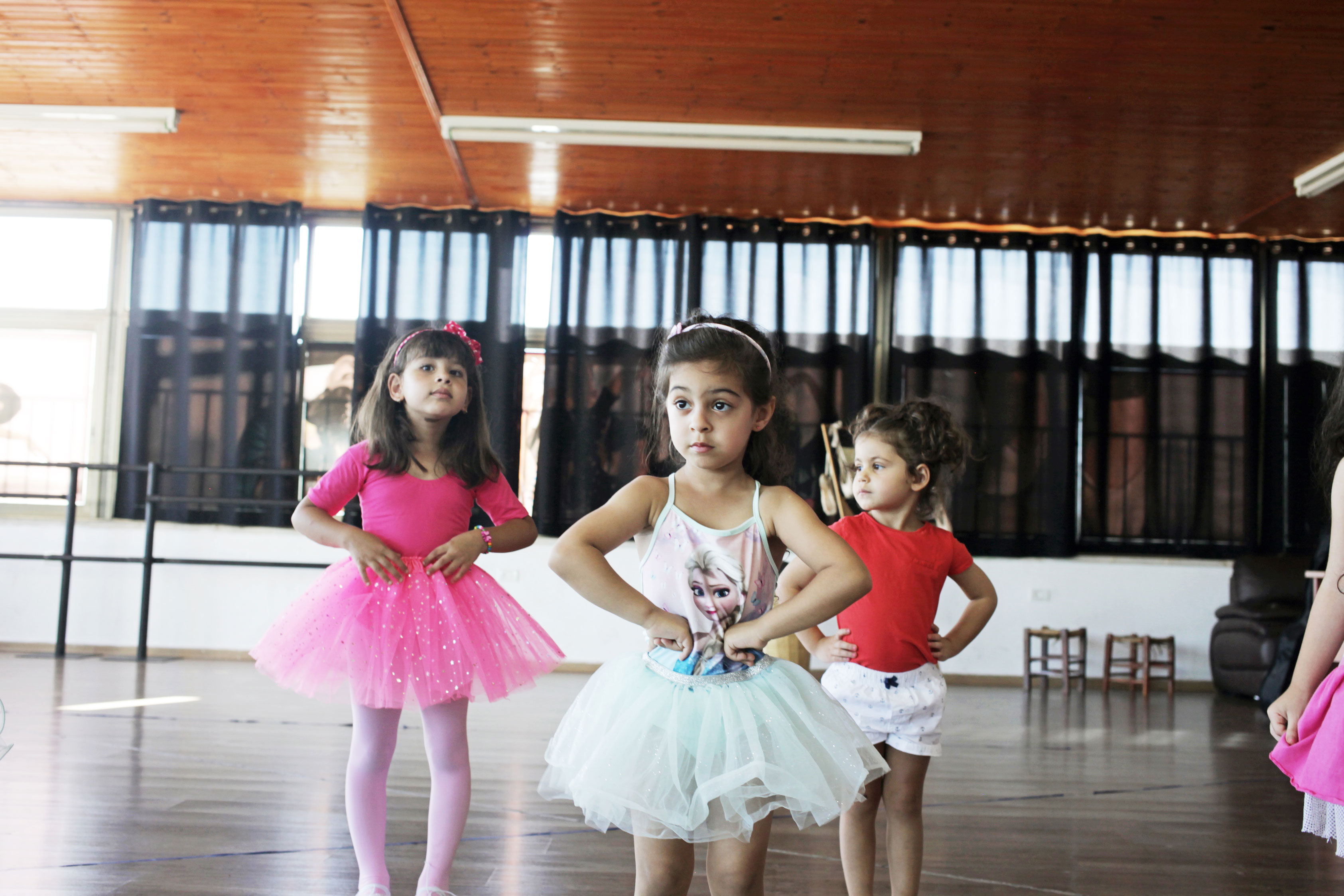
Ameer and the other dancers are determined to change that level of awareness. For them, it has to start with growing Palestine’s cultural presence.
“I think if we put dance more in Palestine and focus more on art, people will feel what freedom is… because we don’t have it,” says Ziadeh.
“[The reality] is different than how the media shows Palestine: always violence… killing… and it’s not like that at all. We’re trying to deliver a message to the world that says, ‘No, see, we’re human beings. We have something, something not so different… Something like you.’”
This article appears in Huck 56 – The Independence Issue. Buy it in the Huck Shop now or subscribe today to make sure you never miss another issue.
Enjoyed this article? Like Huck on Facebook or follow us on Twitter.
Latest on Huck

Analogue Appreciation: lullahush
Ithaca — In an ever more digital, online world, we ask our favourite artists about their most cherished pieces of physical culture. Today, it’s Irish retro-futurist lullahush.
Written by: lullahush

Spyros Rennt captures connection and tenderness among Berlin’s queer youth
Intertwined — In the Greek photographer’s fourth photobook, he lays out spreads of togetherness among his friends and the German capital’s LGBTQ+ party scene.
Written by: Isaac Muk

The rebellious roots of Cornwall’s surfing scene
100 years of waveriding — Despite past attempts to ban the sport from beaches, surfers have remained as integral, conservationist presences in England’s southwestern tip. A new exhibition in Falmouth traces its long history in the area.
Written by: Ella Glossop

Plestia Alaqad: “Journalists should focus on humanising people”
Huck’s April interview — Having become one of the most crucial and followed voices from inside Gaza in the aftermath of October 7, the award-winning author and journalist is releasing a new memoir, ‘The Eyes of Gaza’, collating diary entries made over the past 18 months. We caught up with her to hear more about it.
Written by: Isaac Muk

The instrument makers taking DIY music to a whole new level
What does it take to construct a modular synth? How do you turn a block of wood into a double bass? Here, four craftspeople explain why they chose to rip up the rulebooks and build their own music-making machines.
Written by: Daniel Dylan Wray

Southbank Centre reveals new series dedicated to East and Southeast Asian arts
ESEA Encounters — Taking place between 17-20 July, there will be a live concert from YMO’s Haruomi Hosono, as well as discussions around Asian literature, stage productions, and a pop-up Japanese Yokimono summer market.
Written by: Zahra Onsori